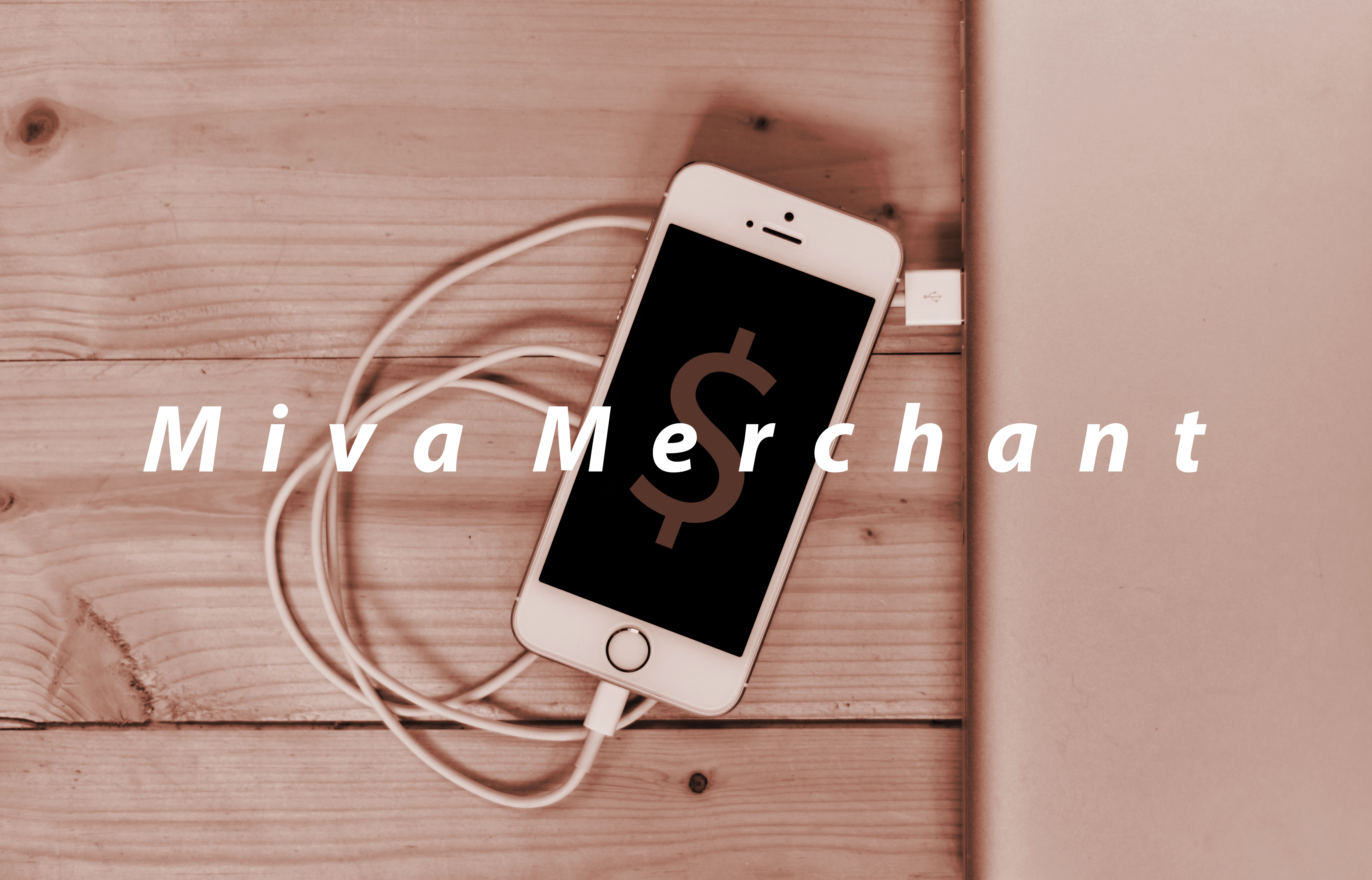Welcome to Part 5 in our in-depth analysis of major ecommerce platforms. In the previous four posts, we discussed WooCommerce, Shopify, Magento, and Bigcommerce. We examined the inherent pros and cons of each platform. In Part 5, we’ll talk about the ecommerce dark horse: Miva Merchant—or simply Miva, as it’s now called. Let’s get started.
How Does Miva Stack Up?
First, let’s talk about what Miva isn’t. Because Miva is so functional and expandable, it’s not for the entrepreneur on a shoestring budget. The old saying, “you get what you pay for,” holds true in ecommerce platforms as in everything else. While Miva isn’t free by any means, it provides great value and—if managed intelligently—great ROI. With a small but devoted development community and none of the inherent limitations we examined in Shopify and Bigcommerce, Miva customization is limited only by store owners’ imaginations.
[clickToTweet tweet=”Because @miva is a subscription service, PCI compliance comes built in. @216_Digital #ecommerce #saas” quote=”Because Miva is a subscription service, PCI compliance comes built in.”]
Also, note that like Magento, Miva isn’t for DIYers who don’t know code and can’t hire a developer. An entrepreneur considering WooCommerce likely isn’t in the market for Miva. Miva runs on a proprietary script, and major modifications are best left to professional web developers. However, just about every modification you can imagine is possible; and because Miva is a subscription service (unlike Magento), key functionality like PCI compliance comes built in, giving you one less thing to check off your list after signing up.
For code-savvy entrepreneurs (or those with plenty of development budget), Miva and Magento might look like neck-and-neck contenders at first. However, as G2Crowd reports, Magento doesn’t stack up too well against Miva. While Magento offers a free platform with added robust functionality at a development price, Miva offers a subscription platform plus added functionality at a lower total cost. Since Miva comes with more functionality out of the box, Miva development is simply not as expensive as Magento development. And while you’ll have to outsource Magento support to your 3rd party developer, Miva support is included in every subscription—even at the boutique pricing tier. That means you don’t have to pay $20,000/year to get someone on the phone. As Miva puts it on their website, they offer an enterprise-quality ecommerce solution without the enterprise-level price tag.
Miva: The Ecommerce World’s Best-Kept Secret

Now, Miva isn’t as well-known as some of the big ecommerce players. But why should it be? Where Miva’s competitors win new customers with a glitzy marketing machine, Miva is arguably the ecommerce world’s best-kept secret. Remember, marketing is expensive, and businesses pass expenses to their customers. If you sign up with a marketing-heavy service, you’re paying for the marketing that convinced you as well as future marketing to net new customers. Ecommerce owners who choose Miva do so for quality and reliability, not for the feel-good experience of working with a great salesman.
Miva has always maintained a transparent relationship with its users. Miva executives can be found posting in Miva forums and responding to reviews on 3rd party blogs. While Miva script is proprietary and customizations require involvement from the development community, the culture of Miva has an open-source feel. Among Miva users and developers alike, the saying is, “if the solution doesn’t exist yet, it can be created.”
Let’s put it this way: if you google “best ecommerce platforms,” you may not see many mentions of Miva. But that’s a testament to the other companies’ focus—marketing. Miva has a dedicated community of longtime clients and experienced developers. If you search for Miva reviews, you’ll find many testimonials from store owners who’ve been using Miva for a decade or more. Most say they would never switch.
Miva isn’t super aggressive in pursuing the low-budget startup—and for good reason. The shoestring budget can’t afford the quality that Miva provides, and the uneducated entrepreneur will take the sales pitches of the big companies anyway. Miva’s strategy focuses more on providing the very best ecommerce platform possible to those who can pay for it. Where Shopify’s average customer does $10k/year in sales, Miva’s average customer does $500k/year. These average customers are both small businesses, but as Miva president Rick Wilson explains in this post, “it’s a different kind of small.”
Further, the average lifespan of a Miva store is 8 years. For Miva’s competition, that average store lifespan is 2.5 years. We think that says it all.
The Bottom Line
As in all things ecommerce, there’s no right answer to the platform question. That answer depends on your market’s growth potential, the functionality you need, your budget, your projected yearly sales, and more. For larger small businesses that need limitless functionality without the handicap of transaction fees and limited access to development tools, Miva and Magento remain excellent choices.
As a Miva developer, 216digital offers responsive design as well as custom Miva modules, tools, and systems. We also develop for Magento. If you’re considering Miva or Magento for your online store, get in touch today. Let’s start talking about your next big thing.

